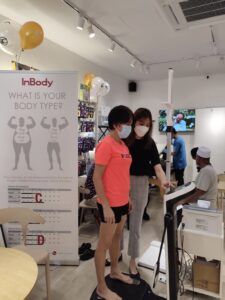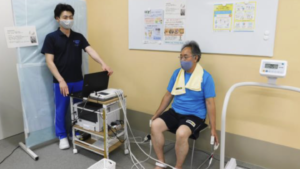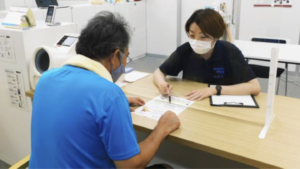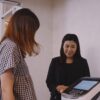

Farmasi Chong Alma’s Soft Launch: A New Standard in Community Health
During the exciting soft launch opening of Farmasi Chong Alma, from June 1 to June 22, 2023, Farmasi Chong Alma went above and beyond to provide exceptional care to their community.
As a special treat, they offered the first 20 customers of the day an exclusive opportunity: a complimentary and comprehensive health assessment like no other!
Not only did Farmasi Chong Alma offer traditional health tests such as blood pressure tests, blood glucose tests, cholesterol tests, muscle strength assessments, and foot arch examinations, but they also introduced an exciting new addition to their services: body composition analysis!
Beyond Traditional Health Tests: Introducing Body Composition Analysis
 For the body composition analysis, Farmasi Chong Alma understands the importance of providing their community with more accurate and insightful health assessments, and delightfully, they have chosen InBody, a body composition analyzer that can precisely measure their customers’ body composition and help their nutritionists and dietitians to identify any underlying health risk of their customers.
For the body composition analysis, Farmasi Chong Alma understands the importance of providing their community with more accurate and insightful health assessments, and delightfully, they have chosen InBody, a body composition analyzer that can precisely measure their customers’ body composition and help their nutritionists and dietitians to identify any underlying health risk of their customers.
Turning Data Into Action: Personalized Health Advice at Farmasi Chong Alma
Using the InBody370S, Mr Chong, a pharmacist and the owner of Farmasi Chong Alma highlighted the usefulness of the parameters from the InBody result sheet, which includes Percent Body Fat, Visceral Fat Level, Segmental Lean Analysis, and Body Composition History.
Since Mr Chong is aware that excessive body fat is a risk factor for various health conditions such as cardiovascular disease, diabetes, and metabolic disorders, he emphasized the usefulness of InBody in assessing Percent Body Fat and evaluating Visceral Fat Level which allow him to offer personalized health advice and interventions to the customers.
Furthermore, Mr Chong is also able to assess muscle mass and identify potential muscle imbalances of the customers by looking at the segmental lean analysis.
Low muscle mass, particularly in older adults, may indicate a risk of frailty and mobility issues, and by recognizing such imbalances early on, Mr Chong can offer supplements or vitamins to improve muscle mass and overall functional capacity.

Tracking Health Progress: The Role of InBody’s Body Composition History
Last but not least, with the body composition history on the InBody result sheet, Farmasi Chong customers are able to assess their fat and muscle changes.

This can encourage their customers to visit the pharmacy more willingly to perform more frequent health assessments and return to the pharmacy for consultations from pharmacists/nutritionists/dietitians at Farmasi Chong Alma.
In specific, the combination of regular assessments and professional guidance can empower customers to take control of their health, creating a strong and lasting bond between the customers and the pharmacy.
Farmasi Chong is deeply committed to creating a healthier and happier community, and InBody takes pride in being recognized as one of the essential tools employed by Farmasi Chong to advance their goal of creating a community that is both healthier and happier!











